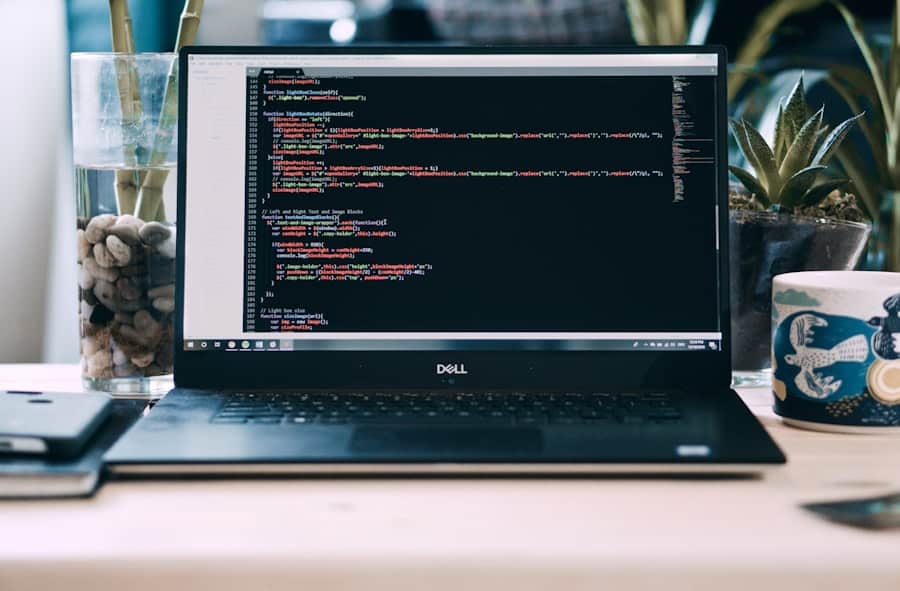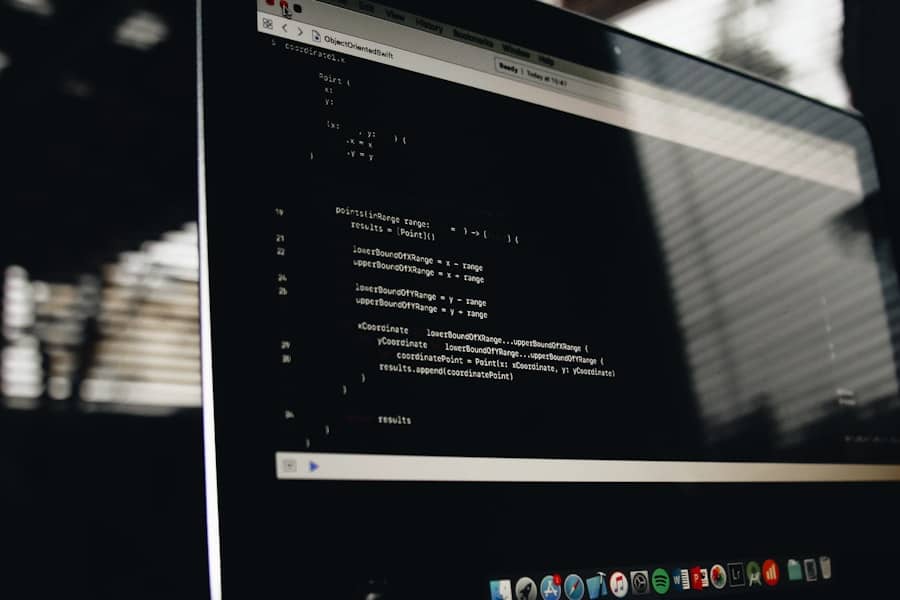In the rapidly evolving landscape of software development, the complexity of applications has surged, leading to an increased demand for efficient debugging tools. Traditional debugging methods, which often rely on manual inspection and trial-and-error approaches, can be time-consuming and prone to human error. Enter AI-powered software debugging tools, which leverage machine learning algorithms and artificial intelligence to streamline the debugging process.
These tools are designed to analyze code, identify bugs, and suggest fixes with remarkable speed and accuracy, fundamentally transforming how developers approach software quality assurance. AI-powered debugging tools utilize vast datasets and sophisticated algorithms to learn from past coding errors and their resolutions. By doing so, they can predict potential issues in new code and provide insights that would be difficult for a human developer to discern.
This not only accelerates the debugging process but also enhances the overall quality of software products. As organizations strive for faster release cycles and higher-quality applications, the integration of AI into debugging practices is becoming increasingly essential.
Key Takeaways
- AI-powered software debugging tools use machine learning and data analysis to automate and improve the process of identifying and fixing software bugs.
- The evolution of AI-powered debugging tools has seen advancements in automated bug detection, root cause analysis, and code repair.
- Current challenges in software debugging include the complexity of modern software systems, time-consuming manual debugging processes, and the need for more efficient bug detection and resolution.
- Advantages of AI-powered debugging tools include faster bug detection and resolution, improved code quality, and reduced development time and costs.
- Future developments in AI-powered debugging tools may include enhanced predictive capabilities, real-time bug detection, and integration with other software development processes.
Evolution of AI-Powered Debugging Tools
The journey of AI-powered debugging tools can be traced back to the early days of software development when debugging was primarily a manual task. Developers relied on print statements, breakpoints, and rudimentary logging to trace errors in their code. As programming languages evolved and software systems became more complex, the need for more sophisticated debugging techniques emerged.
The introduction of integrated development environments (IDEs) brought about some automation, but it wasn’t until the advent of machine learning that a significant leap in debugging capabilities occurred. In the late 20th century, researchers began exploring the potential of artificial intelligence in various domains, including software engineering.
However, these systems often produced false positives and required significant manual intervention. The real breakthrough came with the development of machine learning techniques that could learn from historical data. By training models on large datasets of code and bug reports, developers began to see tools that could not only identify bugs but also suggest potential fixes based on patterns learned from previous coding errors.
Current Challenges in Software Debugging

Despite the advancements in AI-powered debugging tools, several challenges persist in the realm of software debugging. One significant issue is the sheer volume of code that modern applications encompass. As applications grow in size and complexity, identifying the root cause of a bug becomes increasingly difficult.
Developers often find themselves sifting through thousands of lines of code, making it challenging to pinpoint where an issue originates. This complexity is compounded by the fact that many applications are built using multiple programming languages and frameworks, each with its own set of rules and potential pitfalls. Another challenge lies in the dynamic nature of software development.
Continuous integration and deployment practices mean that code is constantly changing, which can introduce new bugs or alter existing ones. AI-powered tools must adapt quickly to these changes to remain effective. Additionally, there is a risk that developers may become overly reliant on these tools, potentially leading to a decline in their debugging skills over time.
Striking a balance between leveraging AI capabilities and maintaining human expertise is crucial for effective software development.
Advantages of AI-Powered Debugging Tools
The advantages of AI-powered debugging tools are manifold and can significantly enhance the software development process. One of the most notable benefits is the speed at which these tools can operate. By automating the identification of bugs and suggesting fixes, developers can save valuable time that would otherwise be spent on manual debugging efforts.
This efficiency not only accelerates development cycles but also allows teams to focus on more strategic tasks, such as feature development and user experience improvements. Moreover, AI-powered debugging tools can improve the accuracy of bug detection. Traditional methods often rely on heuristics or developer intuition, which can lead to missed bugs or incorrect assumptions about their causes.
In contrast, AI algorithms analyze vast amounts of data to identify patterns that may not be immediately apparent to human developers. This data-driven approach reduces the likelihood of false positives and negatives, leading to more reliable software products. Additionally, these tools can provide insights into code quality metrics, helping teams maintain high standards throughout the development lifecycle.
Future Developments in AI-Powered Debugging Tools
As technology continues to advance, the future of AI-powered debugging tools looks promising. One area ripe for development is the integration of natural language processing (NLP) capabilities into these tools. By enabling developers to interact with debugging tools using natural language queries, teams could streamline their workflows even further.
For instance, a developer could ask an AI tool to “find all instances where a variable is not initialized” and receive immediate feedback, making the debugging process more intuitive. Another exciting avenue for future development is the incorporation of collaborative features within AI-powered debugging tools. As software development increasingly becomes a team-oriented endeavor, tools that facilitate collaboration among developers will be essential.
Imagine a scenario where multiple developers can work together in real-time on debugging tasks, with an AI tool providing suggestions based on collective input and historical data from the entire team’s coding practices. This collaborative approach could lead to faster problem resolution and foster a culture of shared learning within development teams.
Ethical and Privacy Considerations in AI-Powered Debugging

The rise of AI-powered debugging tools also brings forth important ethical and privacy considerations that must be addressed by developers and organizations alike. One primary concern revolves around data privacy; many AI systems require access to large datasets for training purposes, which may include sensitive information or proprietary codebases. Organizations must ensure that they comply with data protection regulations while utilizing these tools, safeguarding against potential breaches or misuse of data.
Additionally, there is an ethical responsibility associated with the decisions made by AI algorithms. If an AI-powered tool suggests a particular fix or approach based on biased training data or flawed assumptions, it could lead to suboptimal outcomes or even exacerbate existing issues within the codebase. Developers must remain vigilant in evaluating the recommendations provided by these tools and maintain oversight over critical decision-making processes.
Establishing guidelines for ethical AI use in software development will be crucial as these technologies continue to evolve.
Impact of AI-Powered Debugging on Software Development Industry
The introduction of AI-powered debugging tools has already begun to reshape the software development industry in profound ways. Organizations that adopt these technologies often experience enhanced productivity and improved software quality, leading to a competitive advantage in the marketplace. By reducing the time spent on debugging tasks, teams can allocate resources toward innovation and feature development, ultimately delivering better products to end-users.
Furthermore, as AI-powered debugging tools become more prevalent, they are likely to influence hiring practices within the industry. Companies may prioritize candidates who possess familiarity with these advanced tools or who demonstrate an ability to work alongside AI systems effectively. This shift could lead to a transformation in educational programs and training initiatives aimed at equipping future developers with the skills necessary to thrive in an increasingly automated environment.
The Potential of AI-Powered Debugging Tools
The potential of AI-powered debugging tools is vast and continues to expand as technology advances. These tools not only enhance efficiency and accuracy in identifying bugs but also pave the way for innovative approaches to software development that prioritize collaboration and continuous improvement. As organizations navigate the complexities of modern software engineering, embracing AI-driven solutions will be essential for maintaining competitiveness in an ever-evolving landscape.
While challenges remain—ranging from data privacy concerns to ethical considerations—the benefits offered by AI-powered debugging tools are undeniable. As developers harness these technologies effectively, they will likely see significant improvements in both productivity and software quality. The future holds exciting possibilities for further advancements in this field, promising a new era of intelligent debugging that will redefine how we approach software development as a whole.
If you are interested in staying up to date with the latest technology trends, you may also want to check out this article on Stay Stylish with Wear OS by Google. This article discusses how wearable technology can enhance your style and functionality. Just like AI-powered software debugging tools are revolutionizing the tech industry, wearable technology is also making waves in the fashion and tech world.
FAQs
What is AI-powered software debugging?
AI-powered software debugging refers to the use of artificial intelligence and machine learning techniques to automate the process of identifying and fixing software bugs and errors. These tools use algorithms to analyze code, detect patterns, and suggest potential solutions to developers.
How do AI-powered debugging tools work?
AI-powered debugging tools work by analyzing code, identifying patterns and anomalies, and using machine learning algorithms to suggest potential fixes for software bugs. These tools can also learn from past debugging experiences to improve their accuracy and efficiency over time.
What are the benefits of using AI-powered debugging tools?
Some benefits of using AI-powered debugging tools include faster bug detection and resolution, improved code quality, reduced manual effort for developers, and the ability to handle complex and large codebases more effectively. These tools can also help developers identify and fix bugs that may be difficult to detect using traditional debugging methods.
What are some examples of AI-powered debugging tools?
Examples of AI-powered debugging tools include Microsoft’s IntelliCode, DeepCode, and Rookout. These tools use machine learning and AI algorithms to analyze code, identify bugs, and suggest potential fixes to developers.
What is the future of AI-powered software debugging tools?
The future of AI-powered software debugging tools is expected to involve further advancements in machine learning and AI algorithms, leading to more accurate and efficient bug detection and resolution. These tools may also become more integrated with development environments and workflows, making the debugging process even more seamless for developers.

